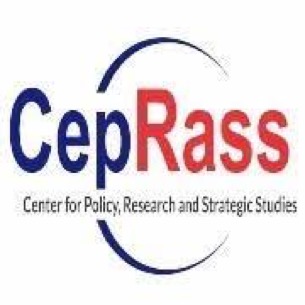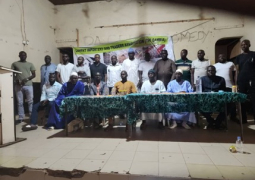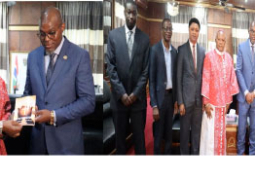
The survey's comprehensive assessment covered education, waste management, agriculture, road infrastructure, land transactions, communication, local government services, health services, water supply, and cross-cutting issues, shedding light on the areas that require urgent attention.
The findings of the survey underscore the challenges and inadequacies present in the provision of these essential services. The report highlighted issues that citizens face daily. Moreover, the survey has exposed shortcomings in health service delivery and identified cross-cutting issues that impact the overall well-being of the communities.
A central theme emerging from the report is the prevalent perception among citizens that the quality of services provided by their local councils is inadequate. This sentiment reflects a pressing need for improvements and reforms across various sectors. The report's statistical data provides a clear picture of the extent of these challenges, helping stakeholders better understand the specific areas that require attention.
Among the identified challenges such as corruption, inadequate support, and communication gaps have been recognised as significant contributors to the deficiencies in service delivery. These findings emphasise the urgency of addressing these issues to foster transparency, efficient resource allocation, and effective communication between local councils and communities.
Perceived quality of services is generally low, with many expressing dissatisfaction. Overall satisfaction with council services is also low, indicating a need for improvements.
Perceived benefits from taxes paid are negative, suggesting a lack of confidence in allocation.
Access to community markets varies, with concerns about infrastructure, waste management, and security. Market duties are seen as moderately affordable, but challenges include inadequate infrastructure and poor waste management.
Overall, there is room for improvement in market satisfaction and services to address various challenges and enhance the quality of life for residents in both regions.
In light of these findings, the report suggests effective communication channels for disseminating information to communities, fostering awareness, and involving citizens in decision-making processes.
These recommendations are essential for bridging the gap between service providers and recipients, enabling a more collaborative and responsive approach to addressing citizens' needs.
Ultimately, the CRC survey report serves as a call to action for both local authorities and higher-level institutions to prioritise improvement in the quality of services provided to citizens in Kerewan and Mansakonko LGAs. By acknowledging the challenges highlighted in the report and implementing the suggested solutions, positive changes can be achieved, leading to enhanced service provision, better living conditions, and increased satisfaction among the residents.
This report provides a foundation for informed decision-making, policy formulation, and collaborative efforts aimed at building stronger, more vibrant, and responsive communities in The Gambia.





